Acknowledgments
 his is a work of popular synthesis with no pretensions to original scholarship. Byzantium's interactions with its three neighboring civilizations constitute separate areas within the larger field of Byzantine studies, and to each of these areas some first-rate scholars have devoted all or part of their careers. In addition, Byzantium per se has also been blessed by the attention of some superb scholars; likewise the separate areas of Italian Renaissance history, Islamic and Arabic history, and Slavic studies, not to mention related fields such as the transmission of classical literature. Without the work of scholars in all of these fields this book would not have been possible.
his is a work of popular synthesis with no pretensions to original scholarship. Byzantium's interactions with its three neighboring civilizations constitute separate areas within the larger field of Byzantine studies, and to each of these areas some first-rate scholars have devoted all or part of their careers. In addition, Byzantium per se has also been blessed by the attention of some superb scholars; likewise the separate areas of Italian Renaissance history, Islamic and Arabic history, and Slavic studies, not to mention related fields such as the transmission of classical literature. Without the work of scholars in all of these fields this book would not have been possible.
While many of the points made in passing are my own, many have also come from the work of these scholars. Most often they have been picked up by other scholars and entered the common reservoir, so to speak, but doubtless sometimes they have not. Regardless, I have given notes not for individual ideas and insights, as one would ideally try to in a scholarly work, but only for quotations. To anyone familiar with the field in question, my debts should be readily apparent, but I would like to sketch them below on a chapter-by-chapter basis, not only for the sake of giving credit where credit is due, but also for the sake of helping the general reader who would like to learn more.
My greatest general debt is to the late John Meyendorff, whose learned and stimulating writings have done so much to illuminate the role of Hesychasm in the dissemination of Byzantine civilization to the Slavic world. Most importantly, I have adopted his conception of Byzantine civilization as a long dialogue between humanists and monks, between faith and reason, between Athens and Jerusalem, and of the Hesychast controversy as the final stage of that dialogue. Meyendorff also stresses the dismay and discomfort of the humanists with the controversy's outcome, and so my own thesis of the Hesychast controversy as an engine of Byzantine cultural influence in the West as well as in the Orthodox world owes much to his insightful scholarship. I have extended Meyendorff's picture of the Hesychast controversy and its implications to include Byzantium's influence on the West, and then used the tension between faith and reason on which the controversy turned to frame my discussion of Byzantine cultural diffusion to the Islamic world. Much of this, I think, is implicit in Meyendorff's analysis, but it needed to be worked out. Focusing on Byzantium's Orthodox legacy, Meyendorff had no interest in either of these latter two fields.
An Orthodox priest as well as a historian, Meyendorff was remarkably objective in many of his judgments, but he resisted mightily the imputation of obscurantism to the Hesychast monks that has commonly been made by sometimes hostile modern historians of a secular humanist bent. On one hand, though I share these historians secular outlook, my view of the monks is less dismissive than they tend to be; on the other hand, I cannot follow Meyendorff in rescuing the monks from the charge of obscurantism. In the end I have been less interested in passing judgment than in telling the storya story to which both sides made valuable contributions as well as perhaps more discreditable ones.
Prologue: My greatest debts are to the work of John Meyendorff, and especially to his article on the Chora in Paul A. Underwood, The Kariye Djami; and to the article by Ihor evenko in the same volume.
Part I
Chapter One: See the work of Averil Cameron, Judith Herrin, Peter Brown, Margaret Gibson, and James J. ODonnell as cited in the Bibliography. Chapter Two: John Meyendorff, as cited in the Bibliography. Chapter Three: Kenneth Setton, The Byzantine Background to the Italian Renaissance; Donald Nicol, The Last Centuries of Byzantium; and the articles of Frances Kianka as cited in the Bibliography. Chapter Four: Michael Baxandall, Giotto and the Orators; George Holmes, The Florentine Enlightenment; Roberto Weiss, Jacopo Angeli da Scarperia; and N. G. Wilson, From Byzantium to Italy.Chapter Five: Eugenio Garin, Portraits from the Quattrocento; the works of Deno John Geanakoplos as cited in the Bibliography; Joseph Gill, Council of Florence; George Holmes, Florentine Enlightenment; and N. G. Wilson, From Byzantium to Italy.
Part II
Chapter Six: See Averil Cameron as cited in the Bibliography; Patricia Crone, Meccan Trade; Garth Fowden, From Empire to Commonwealth; H. A. R. Gibb, Arab Byzantine Relations Under the Umayyad Caliphate; Walter Kaegi, Byzantium and the Early Islamic Conquests; and Speros Vryonis, Jr., Byzantium and Islam, Seven-Seventeenth Century. Chapter Seven: The works of Sebastian Brock as cited in the Bibliography; Garth Fowden, Empire to Commonwealth; Dimitri Gutas, Greek Thought, Arabic Culture; Marshall Hodgson, The Venture of Islam; and Hugh Kennedy, The Early Abbasid Caliphate.Chapter Eight: The works of Dimitri Gutas as cited in the Bibliography; the works of Fred Halliday as cited in the Bibliography; Majid Fakhry, A History of Islamic Philosophy; and Marshall Hodgson, The Venture of Islam, vols. I and II.
Part III
Chapters Nine through Twelve: See the works of John Fine, Dimitri Obolensky, Ihor Sevcenko, and Mark Whittow as cited in the Bibliography. Chapters Thirteen and Fourteen: Obolensky and Whittow as cited in the Bibliography, and Simon Franklin and Jonathan Shepard, The Emergence of Rus.Chapters Fifteen and Sixteen: Dimitri Obolensky, The Byzantine Commonwealth and Six Byzantine Portraits; John Meyendorff, Byzantium and the Rise of Russia; Daniel Pipes, Russia Under the Old Regime; and Janet Martin, Medieval Russia, 980-1584.
Epilogue: See Dimitri Obolensky, Six Byzantine Portraits, and Jack V. Haney, From Italy to Muscovy.
Epilogue
The Last Byzantine
 n an early spring day in the year 1516, an envoy from Vasily III, grand prince of Moscow, arrived at Mt. Athos. He brought money for the monasteries, with instructions that the monks were to pray for the souls of Vasily's deceased parents, Ivan the Great and the Byzantine princess Zoe Paleologa. They were to pray also for an heir to be born to Vasily's childless wife, Solomonia.
n an early spring day in the year 1516, an envoy from Vasily III, grand prince of Moscow, arrived at Mt. Athos. He brought money for the monasteries, with instructions that the monks were to pray for the souls of Vasily's deceased parents, Ivan the Great and the Byzantine princess Zoe Paleologa. They were to pray also for an heir to be born to Vasily's childless wife, Solomonia.
The envoy brought a further request that the monks send to Moscow a certain Sava, an elderly and learned monk from the Vatopedi monastery, so that Sava might perform some important translation work in Moscow. Once Sava had completed the translations, the grand prince promised the abbot of Vatopedi, we will release him again to you.
Sava, it turned out, was too infirm for the rigorous trip north. Instead, the abbot settled upon a younger monk named Maximos. The abbot explained in a letter to the grand prince that Maximos was a suitable replacement, as he was experienced in the divine scripture and capable of interpreting all sorts of books, both church and Hellenic, because from his youth he has grown up in them.
It is interesting that the abbot would mention Maximos proficiency with Hellenic books, which meant ancient Greek literature, or what Byzantines had also called the Outside Wisdom. Such attainments seem unlikely to have been of much use in Moscow. They were certainly rare among the monks of the Holy Mountain, which may be the reason the abbot mentioned them. The monks scholarship generally ran more to Church Fathers and Old Church Slavonic.

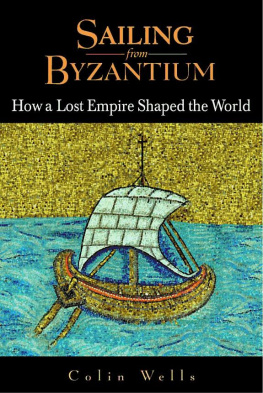

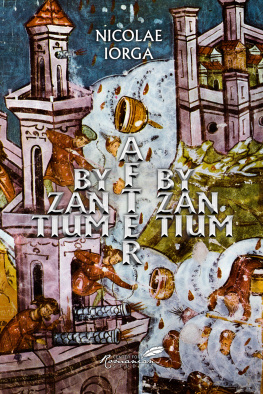
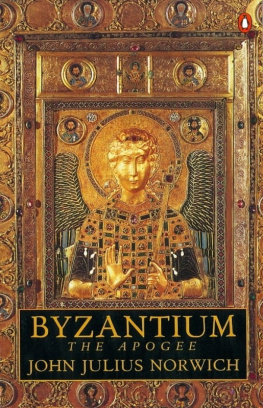
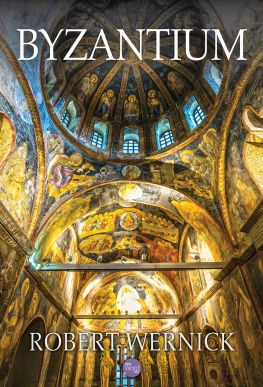
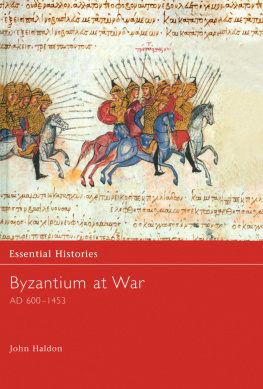

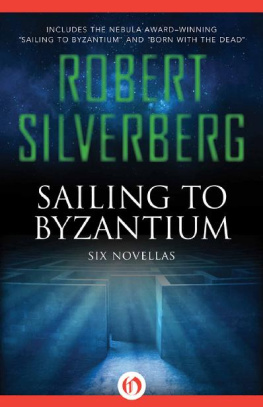
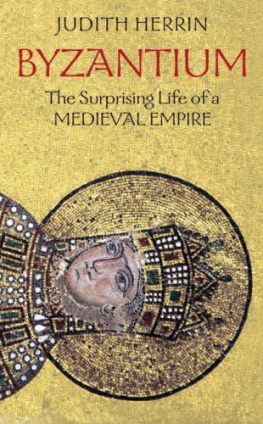
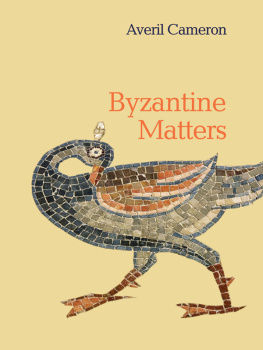
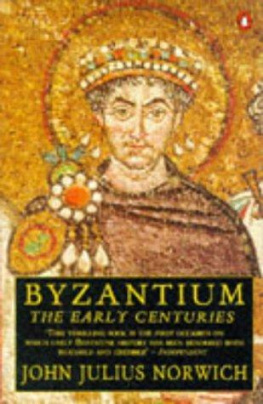
 his is a work of popular synthesis with no pretensions to original scholarship. Byzantium's interactions with its three neighboring civilizations constitute separate areas within the larger field of Byzantine studies, and to each of these areas some first-rate scholars have devoted all or part of their careers. In addition, Byzantium per se has also been blessed by the attention of some superb scholars; likewise the separate areas of Italian Renaissance history, Islamic and Arabic history, and Slavic studies, not to mention related fields such as the transmission of classical literature. Without the work of scholars in all of these fields this book would not have been possible.
his is a work of popular synthesis with no pretensions to original scholarship. Byzantium's interactions with its three neighboring civilizations constitute separate areas within the larger field of Byzantine studies, and to each of these areas some first-rate scholars have devoted all or part of their careers. In addition, Byzantium per se has also been blessed by the attention of some superb scholars; likewise the separate areas of Italian Renaissance history, Islamic and Arabic history, and Slavic studies, not to mention related fields such as the transmission of classical literature. Without the work of scholars in all of these fields this book would not have been possible. n an early spring day in the year 1516, an envoy from Vasily III, grand prince of Moscow, arrived at Mt. Athos. He brought money for the monasteries, with instructions that the monks were to pray for the souls of Vasily's deceased parents, Ivan the Great and the Byzantine princess Zoe Paleologa. They were to pray also for an heir to be born to Vasily's childless wife, Solomonia.
n an early spring day in the year 1516, an envoy from Vasily III, grand prince of Moscow, arrived at Mt. Athos. He brought money for the monasteries, with instructions that the monks were to pray for the souls of Vasily's deceased parents, Ivan the Great and the Byzantine princess Zoe Paleologa. They were to pray also for an heir to be born to Vasily's childless wife, Solomonia.